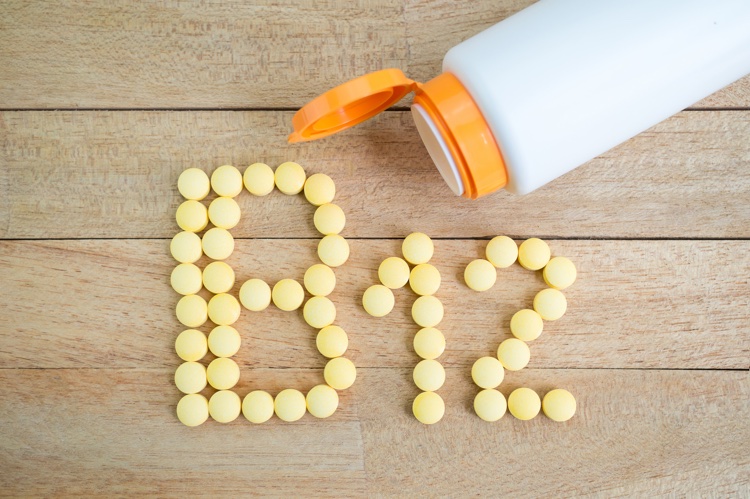Though there are many benefits patients experience after they’ve had bariatric surgery, the surgery does have side effects, especially if the patient has had a type of surgery that bypasses much of their stomach. One of the side effects is that it’s hard for the body to absorb Vitamin B12, or cobalamin. Read more to learn why Vitamin B12 is important after bariatric surgery.
About Vitamin B12
Vitamin B12 requires a mucoprotein enzyme called intrinsic factor to be fully useful to the body. Though some vitamin B12 is absorbed in the mouth, it needs the intrinsic factor that’s made in the stomach to be effective. When vitamin B12 binds with this enzyme, it can be absorbed in the small intestine.
During a gastric bypass weight loss surgery, the part of the stomach that makes intrinsic factor is no longer used to store and help digest the patient’s food. Hydrochloric acid is also necessary for the stomach to produce intrinsic factor, so there is less hydrochloric acid. This results in vitamin B12 being poorly absorbed into the body. The condition is called pernicious anemia.

Why Vitamin B12 is Important After Bariatric Surgery
Vitamin B12 is needed in tiny amounts but is necessary for the normal functioning of the nervous system. It helps the body metabolize fat, protein and carbohydrates.
The good news about vitamin B12 is that it is stored in the body, especially in the liver, kidneys, heart, pancreas, brain, bone marrow and blood. The stores of B12 can last for years before the person begins to experience symptoms of vitamin deficiency. Still, there is a small percentage of people who have a vitamin B12 deficiency even before they undergo weight loss surgery,
Signs and symptoms of a B12 deficiency are arms and legs that feel weak and sore, poor reflexes, unpleasant body odor, menstrual difficulties, diminished sensory perception, clumsiness, stammering and jerking limbs. Severe deficiency can lead to a type of brain damage that presents as a soreness in the mouth, numbness or stiffness, shooting pains, strange hot and cold sensations and a needles-and-pins sensation. The patient can also experience symptoms that resemble schizophrenia.
Forms of Vitamin B12
More good news about vitamin B12 is that it can be taken as a supplement. Some patients take it in tablet form. The tablet is placed beneath the tongue and absorbed by the mucous membranes. This allows the vitamin to directly enter the blood stream without having to bind with intrinsic factor. This method of supplementation is thought to be effective for people who’ve had the Roux-en-Y gastric bypass.
Other patients take vitamin B12 as a nasal spray. It is taken once a week through one nostril.
Medical professionals consider intramuscular injections of vitamin B12 to be the most effective way to get the vitamin into the body. The vitamin can also be injected beneath the skin. The dosage depends on the needs of the patient, though the usual dosage is 1,000 micrograms. At first, the patient may need to have a shot every day, followed by a shot taken every month. The patient can be taught to give themselves the shots and can administer them at home.
Now that you know why vitamin B12 is important after bariatric surgery, learn more about different vitamins in our Bariatric Vitamin Guide.


What are your tips and tricks to post-bariatric success?